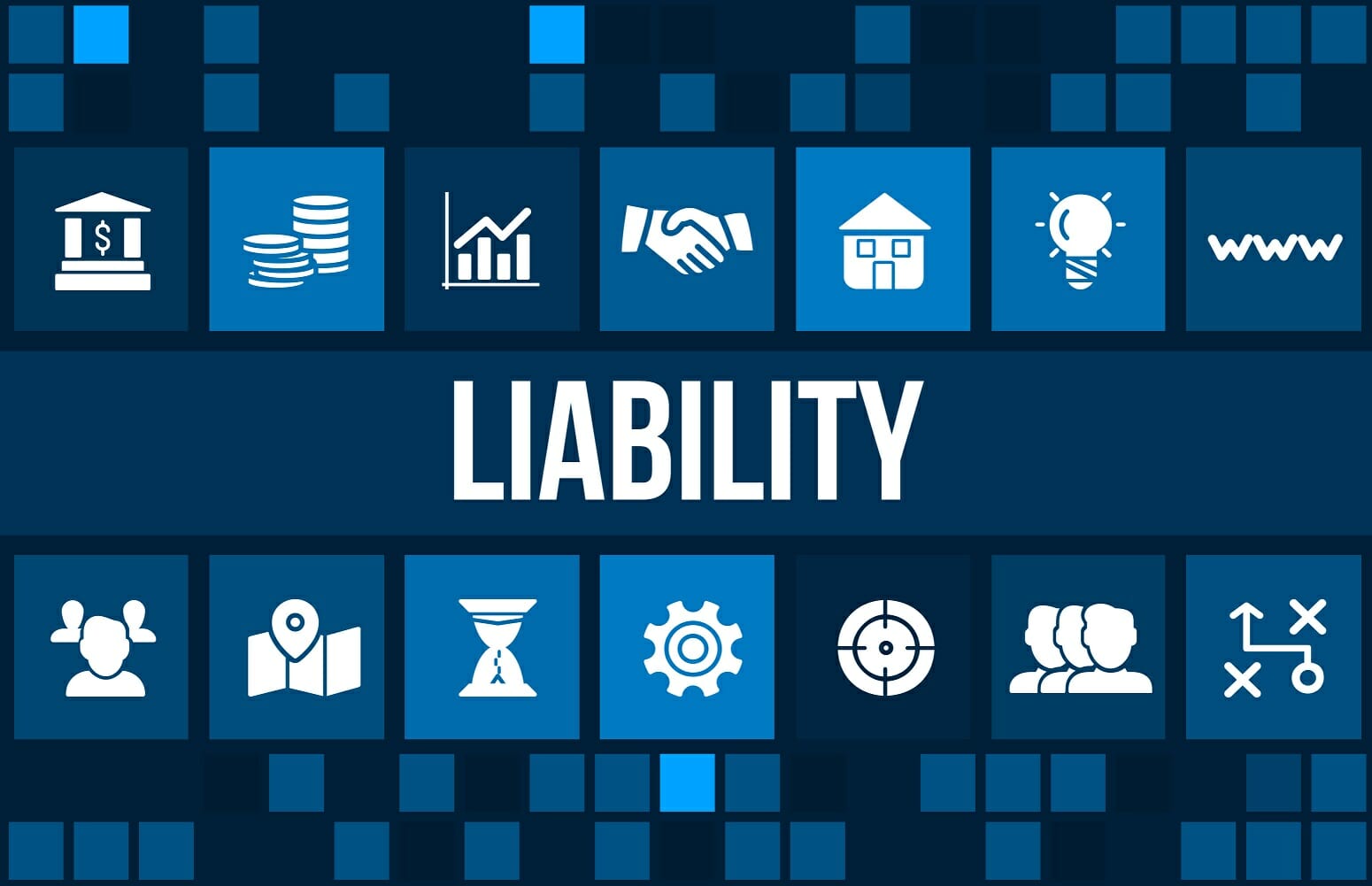Professional Liabilities Insurance

Professional liability insurance, often referred to as errors and omissions (E&O) insurance, is an essential component of risk management for businesses and professionals across various industries. This specialized form of insurance provides coverage for legal liabilities arising from mistakes, negligence, or failures to perform professional services as promised. With an increasingly litigious society and rising expectations for professional standards, the importance of this coverage cannot be overstated.
As the business landscape evolves and becomes more complex, the potential for errors and omissions grows, leaving professionals exposed to costly lawsuits. A single claim, even if ultimately unfounded, can result in significant financial strain and reputational damage. This is where professional liability insurance steps in as a vital safety net, offering protection and peace of mind to professionals and businesses alike.
In this comprehensive guide, we will delve into the intricacies of professional liability insurance, exploring its definitions, importance, coverage, and real-world applications. By understanding the nuances of this insurance, businesses and professionals can make informed decisions to safeguard their operations and reputations.
Understanding Professional Liability Insurance

Professional liability insurance is a bespoke type of insurance policy designed to protect professionals and businesses against claims of negligence or errors made during the provision of professional services. Unlike general liability insurance, which covers bodily injury and property damage claims, professional liability insurance focuses on the specific risks associated with providing professional advice, services, or products.
This insurance is tailored to address the unique vulnerabilities of various professions, offering coverage for potential errors, omissions, or failures to meet professional standards. For instance, a lawyer may be sued for giving incorrect legal advice, a financial advisor for poor investment decisions, or a healthcare professional for a misdiagnosis. These scenarios, and countless others, highlight the importance of professional liability insurance in mitigating financial risks and safeguarding reputations.
Key Components of Professional Liability Insurance
Professional liability insurance policies are intricate, encompassing various components to provide comprehensive coverage. These include:
- Errors and Omissions: This is the core coverage, protecting professionals against claims arising from mistakes or failures to perform services as promised. It covers both actual errors and the perceived failure to meet professional standards, even if the service was provided competently.
- Negligence: The policy covers claims of negligence, which involve a breach of the professional duty of care. This can include failing to exercise the level of skill and care that a reasonable professional in the same field would exhibit.
- Legal Defense Costs: Many policies include coverage for the legal costs associated with defending against a claim, including attorney fees and court costs. This can be a significant benefit, as legal defense can be costly, even if the claim is ultimately dismissed.
- Punitive Damages: In some cases, courts may award punitive damages to punish the professional or business for particularly egregious conduct. Professional liability insurance can provide coverage for these damages, which are not typically covered by general liability insurance.
- Claims Settlement: The insurance policy may also include provisions for settling claims, either through negotiation or mediation, to avoid the costs and uncertainties of litigation.
The Importance of Professional Liability Insurance

Professional liability insurance is of paramount importance for several critical reasons. Firstly, it serves as a financial safeguard, providing coverage for the substantial costs associated with legal defense and potential damages awards. These costs can quickly become prohibitive, especially for small businesses and sole proprietors.
Secondly, professional liability insurance protects against reputational damage. A single claim, regardless of its merit, can tarnish a professional's reputation and erode trust with clients. With insurance coverage, professionals can focus on their work without the fear of a single mistake derailing their entire career.
Additionally, professional liability insurance fosters a culture of accountability and risk management. By recognizing the potential for errors and the need for insurance coverage, professionals are encouraged to maintain high standards and implement robust risk management practices. This, in turn, benefits not only the professionals but also their clients and the industry as a whole.
Real-World Scenarios and Implications
To illustrate the importance of professional liability insurance, consider the following scenarios:
- Legal Misstep: A lawyer, in the course of representing a client, makes a critical error that results in a significant financial loss for the client. The client then sues the lawyer for malpractice. With professional liability insurance, the lawyer can access the necessary legal defense and, if found liable, have the damages covered by the policy.
- Financial Advisor's Oversight: A financial advisor fails to properly diversify a client's investment portfolio, leading to substantial losses. The client, unaware of the risks, sues the advisor for negligence. Professional liability insurance would cover the advisor's legal defense and potential damages.
- Medical Malpractice: A doctor misdiagnoses a patient, leading to a delay in treatment and permanent disability. The patient sues the doctor for medical malpractice. Professional liability insurance provides coverage for the doctor's legal costs and any damages awarded to the patient.
These scenarios highlight the far-reaching implications of professional liability claims and the critical role that insurance plays in managing these risks. Without insurance, professionals and businesses could face devastating financial consequences and irreparable reputational damage.
Coverage Considerations and Limitations
While professional liability insurance offers vital protection, it’s essential to understand the coverage considerations and limitations. These policies are typically designed to cover claims arising from the professional services provided, but they may not cover all potential risks.
Coverage Exclusions
Professional liability insurance policies often include specific exclusions, which are situations or types of claims that are not covered by the policy. These exclusions can vary depending on the profession and the insurance provider, but some common exclusions include:
- Criminal Acts: Claims arising from criminal acts or intentional wrongdoing are typically excluded from coverage.
- Contractual Liability: The policy may exclude claims arising from contractual obligations or breaches of contract.
- Bodily Injury and Property Damage: While professional liability insurance covers errors and omissions, it typically does not cover bodily injury or property damage claims, which are covered by general liability insurance.
- Prior Known Claims: Any claims or circumstances that were known to the insured prior to the policy's effective date are often excluded.
- Intellectual Property Claims: Some policies may exclude claims related to intellectual property infringement or violations of copyright or trademark laws.
Policy Limits and Deductibles
Professional liability insurance policies have set limits on the amount of coverage provided. This limit is the maximum amount the insurance company will pay for any one claim or for all claims during the policy period. It’s crucial for professionals and businesses to carefully consider their potential exposure and choose a policy limit that provides adequate coverage.
Additionally, policies often have deductibles, which are the amounts the insured must pay out of pocket before the insurance coverage kicks in. Deductibles can vary and may be applied on a per-claim or annual basis.
Choosing the Right Professional Liability Insurance
Selecting the appropriate professional liability insurance policy involves careful consideration of various factors. Here are some key aspects to evaluate when choosing a policy:
Policy Coverage
Review the policy’s coverage to ensure it aligns with your specific professional needs. Consider the types of claims that are covered and the exclusions that may apply to your profession. Look for a policy that provides comprehensive coverage for the risks you face in your practice.
Policy Limits and Deductibles
Assess the policy limits to ensure they provide sufficient coverage for your potential liabilities. Consider your industry standards, the value of your services, and the severity of potential claims. Higher policy limits may offer greater peace of mind but can also result in higher premiums.
Similarly, evaluate the deductibles to understand the out-of-pocket expenses you may incur. Lower deductibles can provide more financial protection but may result in higher premiums.
Reputation and Financial Stability of the Insurer
Choose an insurance provider with a solid reputation and financial stability. This ensures that the insurer will be able to honor their commitments and pay out claims when necessary. Look for insurers with a strong track record in your industry and positive reviews from other professionals.
Policy Flexibility and Customization
Opt for a policy that offers flexibility and customization to meet your specific needs. Some insurers provide options for endorsements or additional coverage to address unique risks or situations.
Cost-Effectiveness
While cost is an important consideration, it should not be the sole factor. Compare policies based on their coverage, limits, and deductibles to ensure you’re getting the best value for your money. Remember, the cheapest policy may not provide the necessary protection for your professional liabilities.
Future Implications and Emerging Trends

The landscape of professional liability insurance is continually evolving, influenced by changing business dynamics, emerging risks, and evolving legal environments. Here are some key trends and implications to consider:
Digital Transformation and Cyber Risks
The digital age has brought new risks, particularly in the form of cyber threats. As professionals increasingly rely on digital technologies and online platforms, the potential for data breaches, hacking, and cyberattacks has grown. Professional liability insurance policies are adapting to include coverage for cyber risks, recognizing the need to protect professionals from the financial and reputational fallout of such incidents.
Changing Professional Standards
Professional standards and expectations are continually evolving, often in response to societal changes and advancements in knowledge. This evolution can create new risks for professionals. For instance, as medical knowledge advances, healthcare professionals may face claims of negligence for not staying up-to-date with the latest treatments. Professional liability insurance policies must adapt to keep pace with these changing standards to provide adequate coverage.
Global Expansion and Cross-Border Risks
As businesses expand globally, they face new risks and complexities. Professional liability insurance policies need to consider cross-border exposures, particularly in regions with different legal systems and standards of care. Insurers are increasingly offering policies that provide coverage for claims arising from international operations, ensuring that businesses can operate globally with confidence.
Data-Driven Risk Assessment
The availability of vast amounts of data is transforming the insurance industry. Insurers are leveraging advanced analytics and artificial intelligence to assess risks more accurately and efficiently. This data-driven approach allows for more precise underwriting and pricing, enabling insurers to offer tailored coverage for professionals in various industries.
Conclusion
Professional liability insurance is a critical component of risk management for businesses and professionals. By understanding the intricacies of this insurance, professionals can make informed decisions to protect their operations, reputations, and financial well-being. As the business landscape continues to evolve, so too must the strategies for managing professional liabilities, ensuring that professionals can focus on their work with the necessary peace of mind.
How much does professional liability insurance cost?
+The cost of professional liability insurance can vary widely depending on factors such as the profession, the level of coverage required, the insurer, and the region. Premiums can range from a few hundred dollars to several thousand dollars per year. It’s essential to shop around and compare quotes from multiple insurers to find the best coverage at a competitive price.
Can I get professional liability insurance for my specific profession?
+Yes, professional liability insurance is available for a wide range of professions, including but not limited to lawyers, accountants, consultants, architects, engineers, healthcare professionals, and financial advisors. The coverage and terms will vary depending on the specific risks associated with each profession.
What happens if I have a claim under my professional liability insurance policy?
+If you have a claim, you should immediately notify your insurance provider. The insurer will then evaluate the claim and determine if it falls within the policy’s coverage. If the claim is covered, the insurer will handle the legal defense and cover the costs and damages as outlined in the policy. It’s important to cooperate fully with the insurer and provide all necessary information to facilitate the claims process.
How can I reduce my professional liability insurance premiums?
+To potentially reduce your premiums, consider increasing your deductible, as a higher deductible can lead to lower premiums. Additionally, maintaining a clean professional record and implementing robust risk management practices can make you a lower-risk candidate for insurers, potentially resulting in lower premiums. Shopping around and comparing quotes from different insurers can also help you find the best rates.



